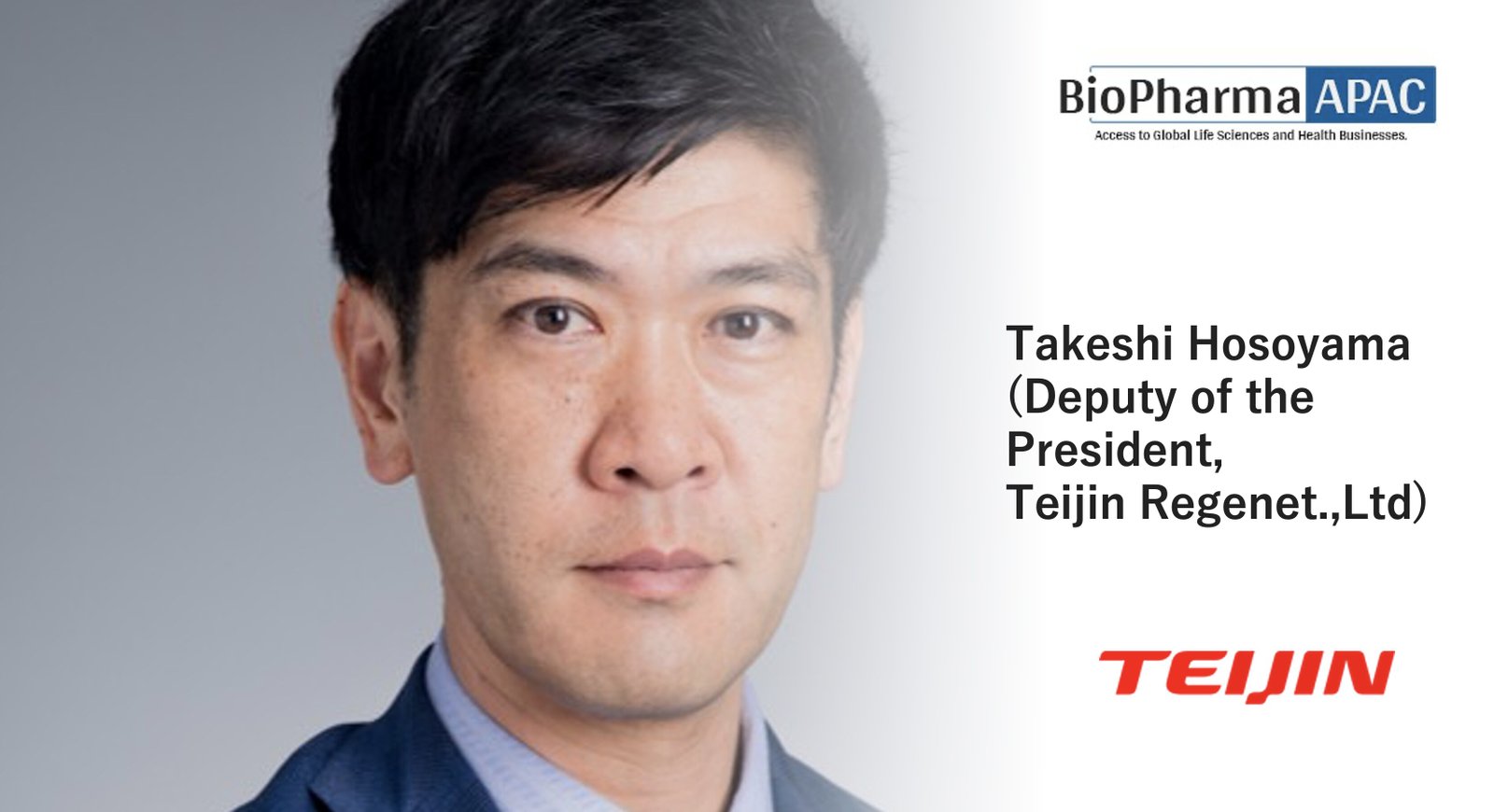Teijin and Cell Therapies Forge a Cross-Border Alliance to Accelerate Cell and Gene Therapy Access Between Japan and Australia
06 October 2025 | Monday | News | By arcilla.fran@biopharmaapac.com

As the cell and gene therapy (CGT) sector moves from scientific promise to large-scale reality, collaboration between nations with strong translational and regulatory capabilities has never been more vital. Japan and Australia—two leaders in clinical and manufacturing excellence—are now joining forces through a strategic alliance between Teijin Regenet Ltd. and Melbourne-based Cell Therapies Pty Ltd.
In this interview, Takeshi Hosoyama, Deputy President, Teijin Regenet Ltd., speaks with BioPharma APAC about the partnership’s impact on regulatory navigation, GMP capacity, clinical trial logistics, and its broader vision for advancing next-generation therapies across borders
How will this partnership ease regulatory entry into Japan for overseas CGT firms?
Japan’s regulatory landscape for cell and gene therapy (CGT) is highly specialised and can be difficult for overseas companies to navigate. Through this partnership, Teijin can leverage its deep network—spanning national clinical centres and key government agencies—to help global firms overcome these challenges. Our role is to provide accurate regulatory insights and end-to-end support that simplifies entry and accelerates approvals.
What additional GMP capacity will be created through this collaboration?
Both Teijin and Cell Therapies bring GMP-compliant facilities capable of manufacturing commercial-scale CGT products within their respective geographies. Beyond capacity, the real synergy lies in process innovation—both partners are actively developing automated manufacturing systems that can make production more efficient and scalable.
How will cross-border clinical trial supply between Australia and Japan be managed?
Each partner has existing collaborations with leading cancer centres—Teijin with Japan’s National Cancer Center (NCC), and Cell Therapies with the Peter MacCallum Cancer Center in Australia. Both facilities are already equipped to manufacture investigational CGT products. Furthermore, Teijin’s logistics partnership with a major Japanese pharmaceutical transport firm ensures compliant, temperature-controlled delivery between regions.
Will the partnership support specific therapy types such as CAR-T or iPSC?
Our scope is intentionally broad. While CAR-T and iPSC-based therapies are natural areas of focus, the alliance is not confined to them. The partnership is designed to accommodate any form of CGT product, from autologous to allogeneic platforms.
What joint training or workforce programmes are being planned?
Formal training initiatives are still under discussion, but both sides recognise the value of cross-learning. We anticipate exchange programmes and shared workshops that build on each partner’s CGT manufacturing expertise—helping to cultivate a skilled workforce ready to meet the sector’s future demands.
Could this MoU evolve into deeper co-development or joint ventures?
Absolutely. Teijin sees this as more than a transactional collaboration; it’s a strategic foundation for broader co-development. We hold high expectations for the partnership’s long-term evolution and its potential to drive new scientific and commercial opportunities across the Asia-Pacific CGT landscape.
Most Read
- How Does GLP-1 Work?
- Innovations In Magnetic Resonance Imaging Introduced By United Imaging
- Management of Relapsed/Refractory Multiple Myeloma
- 2025 Drug Approvals, Decoded: What Every Biopharma Leader Needs to Know
- BioPharma Manufacturing Resilience: Lessons From Capacity Expansion and Supply Chain Resets from 2025
- APAC Biopharma Review 2025: Innovation, Investment, and Influence on the Global Stage
- Top 25 Biotech Innovations Redefining Health And Planet In 2025
- The New AI Gold Rush: Western Pharma’s Billion-Dollar Bet on Chinese Biotech
- Single-Use Systems Are Rewiring Biopharma Manufacturing
- The State of Biotech and Life Science Jobs in Asia Pacific – 2025
- Asia-Pacific Leads the Charge: Latest Global BioSupplier Technologies of 2025
- Invisible Threats, Visible Risks: How the Nitrosamine Crisis Reshaped Asia’s Pharmaceutical Quality Landscape
Bio Jobs
- Sanofi Turns The Page As Belén Garijo Steps In And Paul Hudson Steps Out
- Global Survey Reveals Nearly 40% of Employees Facing Fertility Challenges Consider Leaving Their Jobs
- BioMed X and AbbVie Begin Global Search for Bold Neuroscience Talent To Decode the Biology of Anhedonia
- Thermo Fisher Expands Bengaluru R&D Centre to Advance Antibody Innovation and Strengthen India’s Life Sciences Ecosystem
- Accord Plasma (Intas Group) Acquires Prothya Biosolutions to Expand Global Plasma Capabilities
- ACG Announces $200 Million Investment to Establish First U.S. Capsule Manufacturing Facility in Atlanta
- AstraZeneca Invests $4.5 Billion to Build Advanced Manufacturing Facility in Virginia, Expanding U.S. Medicine Production
News











